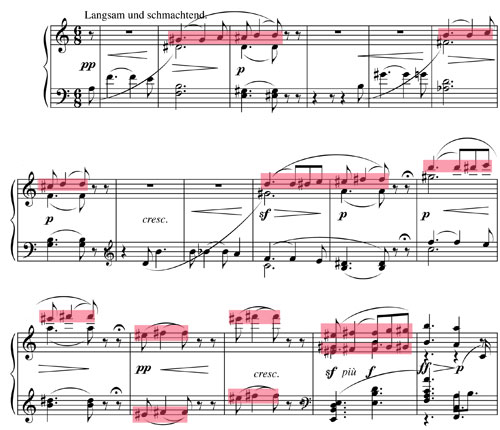







Tristan and Isolde prelude (pt. 1)
Tristan and Isolde is about desire, what it means in the external world, where it comes from, and its relationship to love. Desire is the manifestation of the will in the phenomenal world; it is the basis of human life. Desire – the music and the idea – pervades the entire opera, appearing at key points throughout: the desire music, along with the glance and drink of atonement motives derived from it, dominates the prelude, which, in many respects, is a microcosm of the whole work. Much of Act I is built around the desire music; it is heard in the “O sink hernieder” duet of Act II and again when Tristan responds to King Mark’s question “Why?” it is important in Act III when Tristan curses his existence and later when Brangaene tells Mark that the potion was magic.
Wagner likened the opening of the prelude to the “Buddhist theory of the origin of the world,” in other words, a myth of the world’s creation with love’s desire as the principle behind existence. The famous and much analyzed Tristan chord is heard three times at the beginning, each time on a different pitch level; the Tristan chord can be viewed as the catalyst that spurs a comprehensive reflection about desire and the possibility of transcending it. The initial Tristan chord is followed immediately by the desire music, which ascends stepwise from the highest note of the Tristan chord (g# to a to a# to b, b to c to c# to d, and so on). The boundary pitches of the three statements of the desire motive outline the first Tristan chord. Here are the first seventeen measures with the desire music in red and the first three Tristan chords in vertical boxes:


